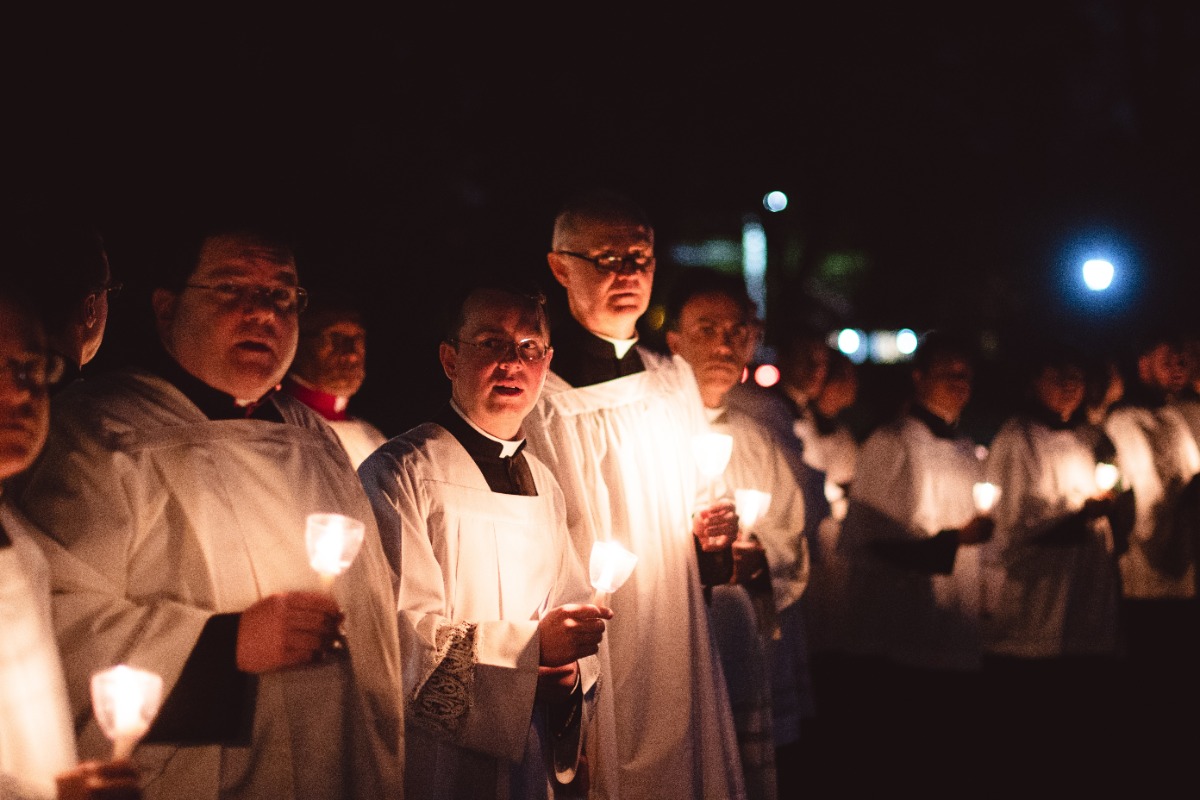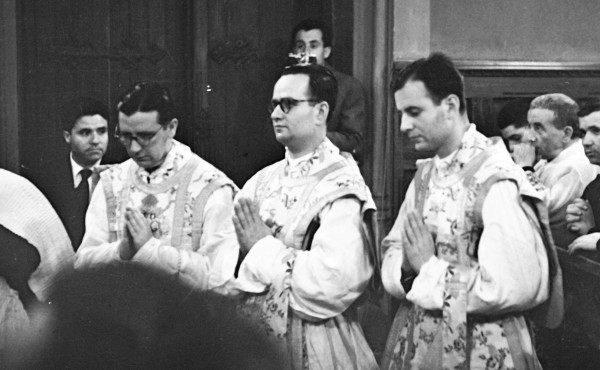
The priest is, above all, a mediator between God and mankind. Someone who makes God present among people, and at the same time, someone who presents before God the needs of all and intercedes for them. Jesuswho is God and true man, is the most authentic priest.
However, knowing the course that the priesthood had taken Israelite In his time, limited to the performance of ceremonies in which animals were sacrificed in the Temple, but with his heart more attentive than usual to political intrigues and the lust for personal power, it is not surprising that Jesus never presented himself as a priest.
His was not a priesthood like the one seen in the priests of the Temple of Jerusalem. Moreover, to his contemporaries it seemed evident that he was not, since according to the Law the priesthood was reserved for members of the tribe of Levi and Jesus was of the tribe of Judah.
His figure was much closer to that of the ancient prophets, who preached the fidelity to God (and in some cases, like Elijah and Elisha, they performed miracles), or above all, the figure of the itinerant teachers who went about cities and villages surrounded by a group of disciples whom they taught and whose instruction sessions they allowed to approach the people. In fact, the Gospels reflect that when people spoke to Jesus they addressed him as "Rabbi" or "Teacher".

Ordination of the first priests of Opus Dei: José María Hernández Garnica, Álvaro del Portillo and José Luis Múzquiz.
Of course. It is typical of the priest bringing God closer to people, and at the same time offering sacrifices on behalf of mankind. The closeness of Jesus to humanity in need of salvation and his intercession so that we could achieve the God's mercy culminates in the sacrifice of the Cross.
It is precisely here that a new clash with the practice of the priesthood proper to that moment. The crucifixion could not be considered by those men as a priestly offering, but quite the contrary. The essential of the sacrifice was not the sufferings of the victim, nor his own death, but the realization of a rite in the established conditions, in the Temple of Jerusalem.
The death of Jesus The execution of a condemned man was presented before their eyes in a very different way: as the execution of a condemned man to deathThe project, carried out outside the walls of JerusalemInstead of attracting divine benevolence, it was considered - taking out of context a text from Deuteronomy (Deut 21:23) - to be the object of a curse.
In the moments that followed the Resurrection and Ascension of Jesus to heaven, following the coming of the Holy Spirit in PentecostThe Apostles began to preach, and with the passage of time they began to associate collaborators to their task. But if Jesus Christ Himself had never been designated as the priestit was logical that such a designation would not even occur to them to use it to their disciples to talk about themselves in those first moments.
In fact, the tasks The functions they performed had little to do with those that the Jewish priests carried out in the Temple. That is why they used other names that more descriptively designated their functions in the first Christian communities: apóstolos which means "sent", epíscopos which means "inspector", presbýteros "elder" or diákonos "servant, helper", among others.
However, in reflecting on and explaining the tasks of those "ministers" who are the Apostles or who themselves were institutingIn the case of the priesthood, it is perceived that these are truly priestly functions, although they have a different meaning from what had been characteristic of the Israelite priesthood.
This "new meaning" can already be appreciated, for example, when San Pablo speaks of his own tasks in the service of the Church. In his letters, to describe his ministry, he uses a vocabulary that is clearly priestly, but does not refer to a priesthood with its own personality, but to a participation in the High Priesthood of Jesus Christ.
In this sense, San Pablo does not claim to resemble the priests of the Old Covenant, for his task is not to burn on the fire of the altar the corpse of an animal to remove it - "sanctifying" it in its ritual sense - from this world, but to "...".sanctify"In another sense, helping them to reach "perfection" by bringing them into the realm of God - to men alive with the fire of the Holy SpiritThe Gospel preached in their hearts through the preaching of the Gospel.
In the same way, when writing to the Corinthians, St. Paul notes that he has forgiven sins not on their behalf, but in their name. in persona Christi (cf. 2 Cor 2:10). It is not a simple representation or a performance "in the place of" Jesus, since Christ himself is the one who acts with his ministers and through them.
It can be stated, therefore, that in the primitive Church there are ministers whose ministry has a truly priestly character, who perform various tasks to the service to the communities Christian, but with a decisive common element: none of them are "priests" in their own right - and therefore do not enjoy the autonomy to carry out a "priesthood" in their own way, with their own personal stamp -, but rather participate in the priesthood of Christ.
Mr. Francisco Varo Pineda
Research Director
University of Navarra
Faculty of Theology
Professor of Sacred Scripture